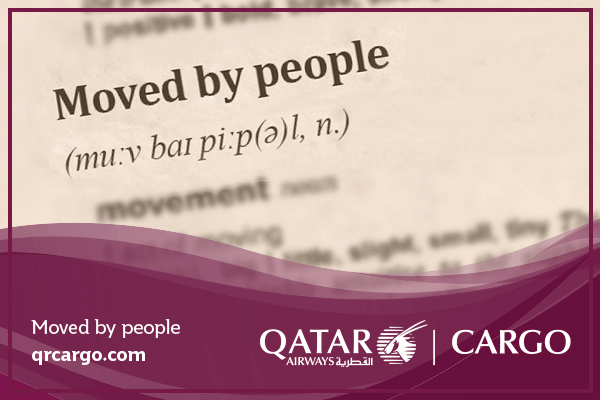
 |
|
|
 |
 #INTHEAIREVERYWHERE |
| Vol. 20 No. 40 | Wednesday
October 13,
2021 |
| |
 |
You remember the announcement in 2016 that at long last IATA and FIATA would engage in a partnership that would do many things? “To meet the evolving needs of the air cargo industry and better reflect the change in relationships and the transformed role of the freight forwarder, IATA and FIATA joined forces to review, refine, and re-engineer the current Cargo Agency Program and to develop a new and modernized Program. The IATA-FIATA Air Cargo Program (IFACP) is the result. It recognizes that the vast majority of forwarders are no longer ‘selling-agents’ for and on behalf of airlines but are ‘purchasing customers’ of airlines and their business relationship is often that of a buyer and seller.”  Well
today don’t bother looking for it, because that long-hoped for IFACP
deal is as gone as was much of Chicago after Mrs. O’Leary’s
cow reportedly kicked over a lantern that began the great fire of 1871. Well
today don’t bother looking for it, because that long-hoped for IFACP
deal is as gone as was much of Chicago after Mrs. O’Leary’s
cow reportedly kicked over a lantern that began the great fire of 1871.We mention Mrs. O’Leary, as IATA World Cargo Symposium takes place in Dublin this week and also because so far not much has been explained by either IATA or FIATA despite our requests for a bit of explanation, here raising the spectre of a swirl of blarney to be circulating out there about that deal, not unlike what happened to Mrs. O’Leary. But unlike the newspaperman that later admitted he made up the Mrs. O’Leary’s cow story, we will factually follow how IFACP unfolded and suppose the rest, hoping to get to the heart of the story. We do know that there were some tests of the partnership in the great supposed coming together of the global organization of the airlines. First some questions: Let us start with the title IFACP, IATA FIATA Cargo Program: Why IATA first, as F comes before I in the alphabet? If you start an exercise this way you are not likely to consider your interlocutor at your same level. One wonders whether the interests of the two organizations have been in sync all along the way, as forwarders repeatedly stated they wanted to be “customers of the airlines”, as we heard in Dublin in 2016, but in reality airlines were ambivalent between considering them as their own agents, if they were smaller entities eager to earn the IATA stamp, or their peers when they wore the colors of DHL’s, K&N’s, etc. As IATA stipulates in its own mission statement the association has always been after safeguarding the interests of the airlines, in particular in matters of money, with the CASS program. Perhaps IFACP began to fall apart, when it was clear that the Europeans were no longer going to be able to use their more advanced and balanced program. If they accepted the new global program, it was impossible for IATA to avoid yielding to the temptation of putting today’s business conditions with forwarders back to last century’s level. Then the pandemic kicked in and cargo seemed to take the limelight in aviation, but . . . the cargo heroes of the pandemic in some cases as 2021 chugs along, and their contribution to saving airlines’ destinies, are now back where they belong: in the storeroom. Similarly we note, Europeans did not manage to get a speaker at that IATA Global AGM conference in Boston last week, in the short window reserved to air cargo. One wonders whether all this can happen without repercussions in the long run? Difficult to say whether airlines will eventually manage to integrate their business into the shippers’ requirements and modus operandi. Today many openly speak about the need for forwarders to evolve dramatically or perish, even among their own ranks. At the end of the day, the failure of the coveted IATA FIATA Air Cargo Program could be an opportunity in disguise and oblige freight forwarders to abandon their traditional approach and think of an entirely new business model, based on paperless and mobile technology. On the other hand, the sudden end of the air cargo program building activity could also introduce controversy among airlines and within IATA. There are airlines that are more ambitious to cooperate with forwarders than others and this remains an open issue within the industry. Time will tell. In any case things between the airlines and the forwarders remain as before although hope springs eternal that something will change before many more generations of us pack it in or heaven forbid, kick the can. Geoffrey |
 |
|
|
|
First you need to know how to say Kale. It’s “Kah-Lee” this brand spelled Kale. Now you have it . . . It’s Kale By Golly. The rest is More—Amar More, company CEO, who explains to logisticians that with his program, “the only thing you have to lose is the wait! “Our community platforms for ports and airports have a huge opportunity with demand for digitization accelerating at a fast pace.” That was the youthful Amar More, Co-founder, Kale Logistics Solutions. Affable and helpful as he always is, Amar uses his 20+ years of experience in supply chain, consulting and technology industries to create digital cargo communities. Kale Logistics aims to reduce complexities involved in the cargo logistics processing at airports, seaports and customs checkpoints, using their cloud-native integrated platform and ERP solutions for all stakeholders in the logistics industry. While the (IATA) World Cargo Symposium continues in Dublin, it might be useful as events open up face to face, to share some of the important content still being delivered by industry leaders virtually. Amar More shared some thoughts and ideas at the virtual 11th Central Asia Trade Forum organized by USAID with the support of Chartered Institute of Logistics and Transport that was conducted globally earlier this month October 4-8th. The virtual forum focused on the economic recovery from COVID-19 across a range of topical areas including tourism, transport and logistics, e-commerce, technology, trade agreements, water and energy sustainability, and women and youth. Amar was a keynote speaker and panelist on the session “A Digital Future – The Transport & Logistics Dimension”. Mr. More related the pivotal role that the air cargo industry has played in saving lives during the pandemic and the strides that were taken in digitization across the globe. He shared with a global audience of government leaders and others the role of Cargo Community Systems in the post-pandemic era in creating an efficient, visible and sustainable air cargo value chain. The emphasis of his dialogue was on why do we need these digital tools and, why now? Amar went on to explain the relevance of such platforms in the context of United Nations Centre for Trade Facilitation & Electronic Business UNECE/CEFACT recommendation 33 on single windows. Critical thinking shared included, "how community platforms act as vital digital trade facilitation tools, not just to grow the business at specific ports or airports efficiently, but also a tool to create digital trade corridors connecting the airports to other partner airports." Mr. More also detailed the role of these platforms in land-locked central Asian countries for growing their trade. Finally Amar More delineated several commercial, security, customer service, efficiency, sustainability benefits to the different logistics stakeholders. “Deep tech interventions like Internet of Things (IoT), Drones, Artificial Intelligence and Machine Learning pertinent to the air cargo and logistics industry, further bolster the power of digital cargo communities,” Amar More declared. FlyingTypers spoke to Amar prior to World Cargo Symposium. FT: Hi Amar, we know that no matter what ever they call Kale, you would prefer to not be called late for dinner! But to business . . . as you have been quite active in ramping digitization at key India gateways during COVID what lessons can the airports in North America and other continents learn from Indian airports? AM: As I keep saying, last year saw 4-5 years of digitization packed into one and for an industry like ours which had been traditionally slow in adopting the technology it was a blessing in disguise. COVID-19 created several imperatives in the form of lockdowns, need for social distancing, need for reducing paper (which is a medium for transferring virus) and need for members of our industry to work from anywhere, anytime. The solution for all the above imperatives is indeed in creating digital logistics communities (also called cargo community platforms) around the airports and ports. Airport authorities are landlords and most across the world play a limited role in actual cargo operations (which they concession out to cargo handling companies). However, during the pandemic, the airports realized that they have to play a more active role in cargo as cargo was the lifeline of aviation. Airports in India leveraged the community platforms to ensure that congestion of humans / trucks at the airports is minimized, unnecessary paperwork was avoided with information being exchanged through the platforms, thereby reducing the probability of virus transmission. These platforms also ensured that the community could work 24x7 and virtually. This kind of digitization also helped the airports attract more cargo and hence generate more economic activity and jobs. Taking cue from the progress that the airports have made here, the airports globally and especially in North America, can now get more actively involved in creation of such digital infrastructure to facilitate trade and reduce covid transmission. With Kale, of course, the airports don’t need to invest any significant capital expenditure for such infrastructure which makes this even easier. FT: There is news that congestion is plaguing most North American airports and ports. How can your technology help these airports and ports in dealing with these issues? AM: Indeed, congestion of airports and ports in North America is making the headlines everywhere. To address the congestion, one had to understand the first principles of congestion i.e. why does the congestion happen. Some reasons are controllable and others are difficult to control. We have done very detailed analysis of congestion and have designed our platform to address the controllable factors of congestion. The key reasons of congestion are the backlog of trucks/traffic, paperwork being done at the airport, lack of visibility to truckers on whether their cargo is ready for pick up or not and finally absence of information to the handlers on how many trucks are coming and when at their terminals. Our platform addresses these factors, we streamline the truck flow through an Artificial Intelligence-based truck slot management system, reduce paperwork being done at airport through electronic information exchange through innovative machine learning-based services, give visibility of readiness of cargo to the truckers and the wider community through mobile apps and empower the handlers with knowledge of expected volume and type of traffic. We believe that this technology has helped the world’s most constrained airports and can certainly be the right solution for the airports and ports experiencing congestion. FT: Can you share a working experience with a major gateway in North America? AM: I am sure you are aware that we created North America’s first airport cargo community platform at the world’s busiest airport: Hartsfield Jackson Atlanta International airport. This concept is relatively new in North America and the community is in “Education” mode. Needless to say there are early adopters who have seen the opportunity and have latched on to the next generation technology for creating efficiencies. We are currently in active discussions with several large airport communities (around 10) on the east and west coast to help them deal with these issues. We believe that these communities will move from the “Education” phase to “Adoption” phase in the next 1-2 years. As we speak, globally, we are engaged with around 40 airport and port communities. FT: Now we understand Kales is gearing up digitization for Boston? AM: We are kicking off the pilot phase with a few use cases of our cargo community system with the cargo stakeholders in Boston. It is indeed exciting to see the community gearing up for digital transformation. FT: How do you think your technology will help the small and medium forwarders deal with the challenges posed by the pandemic? AM: Community systems in a sense democratize the technology. SME forwarders who have very little capital to invest in state of the art technology to deal with shortage of resources, excessive paperwork, congestion issues etc; can benefit from a community platform where state of the art technology is available to them on purely pay as you go model. The access to not just technology but also cybersecurity through a community platform is a huge gain for SME forwarders who hitherto didn’t have this opportunity. FT: Whilst taking a closer look at your offering, would you kindly offer some useful advice in the meantime to busy airports and cargo communities across the world and especially in North America? AM: Quit the fence sitting!!! Pandemic, like every adversity, has created phenomenal opportunity to accelerate digitization. The tools are right there for the taking and you don’t have to worry about capital investments. If you miss this bandwagon and your competitor doesn’t, then it will create irreparable loss of attracting more cargo business and creating more job opportunities. If ever there was the best time to create digital cargo communities it is now. Start now! Tirthankar Ghosh |
This snapshot has been taken a million times around the world. But after the COVID-19 punch in the nose of the past 18 months it’s nice to see industry builders back, minus the masks! At Brucargo, Brussels Airport’s logistics zone, from l to r Vlaams-Brabant province council member CD&V's Tom Dehaene, Hoyu Europe Logistics General Manager Cling Guo and Brussels Airport CEO Arnaud Feist launch a new 8,000 sq meter logistics warehouse for the Hongyuan Group, Thursday October 7, 2001. Hongyuan Group is a Chinese cross–border trade integrated service provider, and Brussels Airport as everyone knows is an excellent strategic location for any logistics European Headquarters. Now Hongyuan expands its network and BRU also strengthens its connectivity to Asia. SSA |
 |
RE: Too
Cool McCool Is Ireland Cargo |
If
You Missed Any Of The Previous 3 Issues Of FlyingTypers Access complete issue by clicking on issue icon or Access specific articles by clicking on article title |
||
 Vol 20. No. 37 Chrome Jerome For Lyon Chuckles for September 29, 2021 Cargo LAX Bad To Worse Webber Factfinding As Airports Signal Change Mighty Wind Of Human Spirit Elliott Paige on 911 Big Don Lamy Says Goodbye |
|
|
Publisher-Geoffrey Arend
• Managing Editor-Flossie Arend • Editor Emeritus-Richard
Malkin Film Editor-Ralph Arend • Special Assignments-Sabiha Arend, Emily Arend |
Send comments and news to geoffrey@aircargonews.com
|